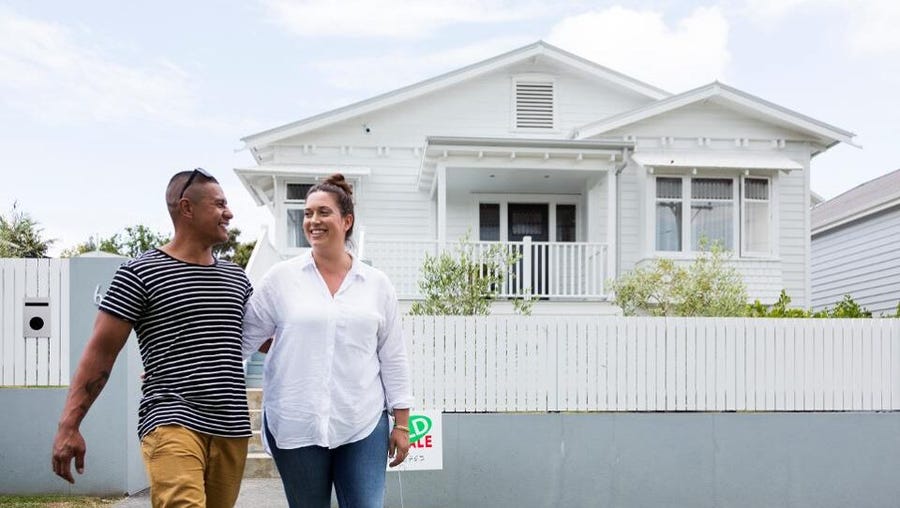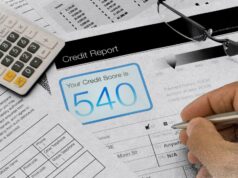Most of us would love to own our own home: it’s an appreciable asset that affords privacy, security, and more versatility than renting. While renters can move more frequently, they’re bound by the rules of their landlords, and they’re not building their credit or equity. It’s no wonder that most Americans list buying property as one of their greatest goals.
However, actually securing a mortgage can be an incredibly overwhelming process with numerous steps; it can often feel like you’re in it on your own, up against a sea of information that just makes you more confused. Here are the key things you need to know about getting that approval paper – as well as some pitfalls to avoid.
Work on your credit

Your credit score isn’t just a number: it’s a signal to lenders that you’re trustworthy and will make good on your promises. Great credit comes with many important perks, like better access to low interest rates and more options for refinancing. As such, it’s essential that you pay close attention to your credit before you consider seeking out a mortgage.
Credit scores are between 300 and 850, with 670 being considered average. With a good score, you’re eligible for a loan, but the possibility of a low interest rate improves with a higher score. If you want to get a great rate on your mortgage, pay off your debts as soon as possible, keep on top of your bills, aim to use as little of your available credit as you can, and check your credit regularly so you can dispute anything that doesn’t seem right.
With a great credit score in hand, it’s time to look into your options for a mortgage.
Find a mortgage broker
While it’s possible to use a direct lender, like a financial institution, this won’t necessarily get you a great interest rate, and it takes far longer. By contrast, mortgage brokers like District Lending can access the best possible interest rates for your circumstances. They may even help you refinance if you’re eligible for a lower interest rate later on, which can offer you significant savings over the lifetime of your loan.
Gather all the information you need for a pre-approval

The pre-approval process is incredibly important, as it determines how much money you can be lent based on the information you provide. Many institutions, including most mortgage brokers, can get you pre-approved online in only a few hours, but you need to have all the information at the ready to get this done quickly.
Information you should have available for the pre-approval process can include the following:
- Your Social Security number, used to verify your credit score with the three credit bureaus;
- Your two most recent tax returns;
- Wage information, which can include payroll stubs;
- Two months of bank statements for all of your accounts;
- Statements from any brokerage or retirement accounts;
- And lists of all your current debts, including your monthly payments and balance.
You may also need to provide other information, such as rental payments, divorce records, bankruptcy or foreclosure statements, and gift letters if your down payment is being gifted to you. The pre-approval forms will tell you exactly what you need for your particular circumstance, and you may have to find extra information beyond what is listed here, but having all of this information available ahead of time will make the process much easier.
If you’re going through a mortgage broker, they can verify this information quite quickly – sometimes even on the same day – and then you’ll receive an approval letter you can use to start shopping for a house. The approval letter will explain how much you can borrow and what your interest rate will be, depending on whether you want to use a 15-year or 30-year mortgage. You’ll need to show this once you place an offer on a house.
From here, you get to the part most people think of when they consider getting a mortgage: actually searching for a property and closing on it.
The last steps: making an offer and closing on a property

After selecting a property, you’ll make an offer based on what you can afford and what the asking price is. If you’re working with a real estate agent, they can guide you through this process and suggest how much you should offer. If your offer is accepted, you’ll contact an underwriter, who will make sure everything about the sale is legal: this includes verifying the title of the deed so it can be transferred to you, ensuring the appraisal is correct, and checking that the house has passed any necessary inspections.
Once everything about the home has been verified, you’ll use your mortgage information to close on the property, which will include a Closure Disclosure. Information on the Closure Disclosure includes the down payment, the closing costs, the interest rate of your mortgage, and your monthly payments.
The bottom line
Some people believe that the process of getting a mortgage is a mystifying, arcane process over which you have little control, but that’s not true. Taking care of your finances, including building your credit score, and working with a good mortgage broker can make it much easier to finally get into your dream home. Knowing these basic steps will help you feel much more confident as you seek a loan to finance the property you’ve longed for.









